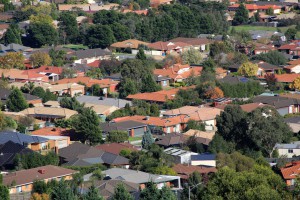Most Australians believe foreign investors are the biggest reason for house prices rising strongly according to a new Galaxy Research survey of 1,006 people nationwide, conducted on behalf of non-bank lender State Custodians Home Loans.
The survey showed that the majority of Australians are now laying the blame for this squarely at the feet of foreign investors with 59 per cent of respondents believing foreign investor activity is pushing up house prices the most.
Older respondents feel the strongest about the issue with 69 per cent of those aged 50 plus nominating this factor, compared to 54 per cent of Gen X, and 49 per cent of Gen Y.
Additionally, those in the most heavily populated states of NSW (60 per cent) and Victoria (63 per cent), where foreign investment has been a hot topic, feel this is the main issue compared to less populated states of WA (50 per cent), SA (54 per cent) and Queensland (56 per cent).
Although debate has raged for the last few years on the exact impact foreign investors actually have on the housing market, the government recently took some action in the 2017/2018 budget by restricting the number of homes for sale in any new development by half to foreign investors.
They also will slug a “ghost tax” on foreign buyers of up to $5,000 if they leave their purchased homes unoccupied or untenanted in a bid to alleviate pressure on tight rental markets.
Other factors Australians feel are increasing house prices are negative gearing incentives for property investors (41 per cent), and high costs like stamp duty and capital gains tax putting homeowners off selling and buying, thereby limiting homes for sale (35 per cent).
Meanwhile 32 per cent believe current low interest rates are merely encouraging more cashed up buyers into the market, driving up prices even further.
State Custodians’ general manager Joanna Pretty says the collective impact of so many forces at work is what’s really contributing to the housing affordability crisis, rather than any one thing in particular.
“It’s the perfect storm of numerous factors coming together which is shaping the market we are experiencing today,” she says.
“The budget changes will go some way to help regarding foreign investment levels, but then the other factors still exist. There is still a lot of work to be done regarding affordability in general.”
Other major concerns relate to population issues.
Some 42 per cent of people believe that over population in major cities is pushing up demand.
Another 28 per cent also feel there’s not enough overall housing stock on offer for the amount of people looking.
“It is definitely tough to buy in metro areas these days in the larger cities, especially if you’re struggling to make ends meet on your current wage,” acknowledges Ms Pretty.
“There is currently a lot of competition with limited stock. Plus, the deposit requirements are significant, even if you’re an expert saver.
“Unfortunately buying your ‘forever home’ right off the bat is not always a feasible or quick option like it has been in the past.”
Ms Pretty says people who are competing for limited stock need to be open to suggestions on how to move forward.
“Look at different types of investing options. For example, if you don’t want to move from your neighbourhood, consider renting there and buy an investment property elsewhere. Make sure you’re constantly scouring real estate sites and be on good terms with local agents so they can alert you early on if something in your price range pops up.
“Also seek out advice from lending experts about areas you are interested in and how much you can borrow. Make sure your finances are sorted out prior to your search starting so you can truly understand your limit.”



No comments:
Post a Comment